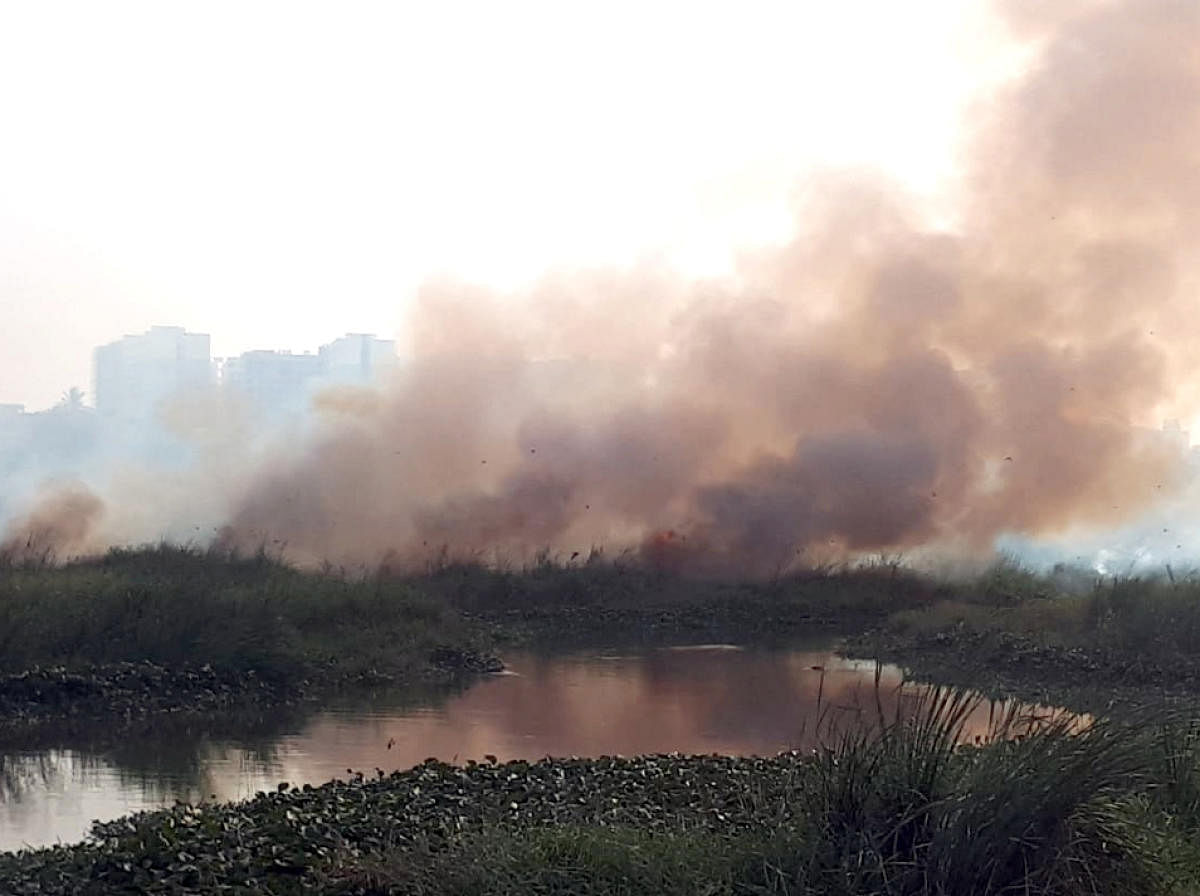
Bengaluru, once known as the city of lakes, has now gained notoriety for its fast disappearing water bodies, while the existing ones are so highly contaminated that they are prone to catching fire every now and then. On Sunday, it was the turn of Varthur lake to go up in flames, for the second time in less than a year, engulfing the entire area in smoke. Varthur and Bellandur lakes are the most polluted lakes in the city, with a committee of the National Green Tribunal describing them as “the biggest septic tanks with not a millilitre of clean water.” A six-month analysis of the water quality in 2008 by the Centre for Ecological Sciences, Indian Institute of Science, revealed that the lake had a high concentration of phosphorous and organic matter caused by residential, agricultural, commercial and industrial effluents. The study highlighted the need and urgency to restore the physical, chemical and biological integrity through viable restoration and sustainable watershed management strategies, including pollution abatement, catchment treatment, de-silting and educating all stakeholders on the conservation and restoration of lake ecosystems.
Lakes in Bengaluru have historically faced monumental neglect due to which their numbers have steadily fallen from over 280 in 1960 to 80 in 1983 to less than 20 now. Most lakes have vanished due to encroachment or creation of golf courses, bus stands, public utilities and BDA residential layouts. Way back in 1985, an expert committee set up by the Karnataka government had raised the red flag underlining the failure of various civic bodies in protecting water bodies and suggested a series of measures to rejuvenate them. Successive governments have fallen short of implementing even the basic recommendation that the flow of untreated waste should not be allowed into lakes. In 2002, the government established the Lake Development Authority (LDA) with the sole purpose of restoring water bodies, but in the absence of adequate funds and other powers, the body has remained a toothless tiger. A move to privatise the maintenance of lakes also backfired with some lessees violating land-use regulations.
There are a plethora of organisations managing the city’s lakes. The government should bring all water bodies under the purview of the LDA to ensure a coordinated and sustained effort towards revival and protection. Private participation should also be vigorously pursued after putting in place the required checks and balances. The deterioration of lakes despite early warnings points to the complete failure of the bureaucracy which has been presiding over the death of water bodies with impunity. Unless a few heads roll, there is no hope for our lakes.